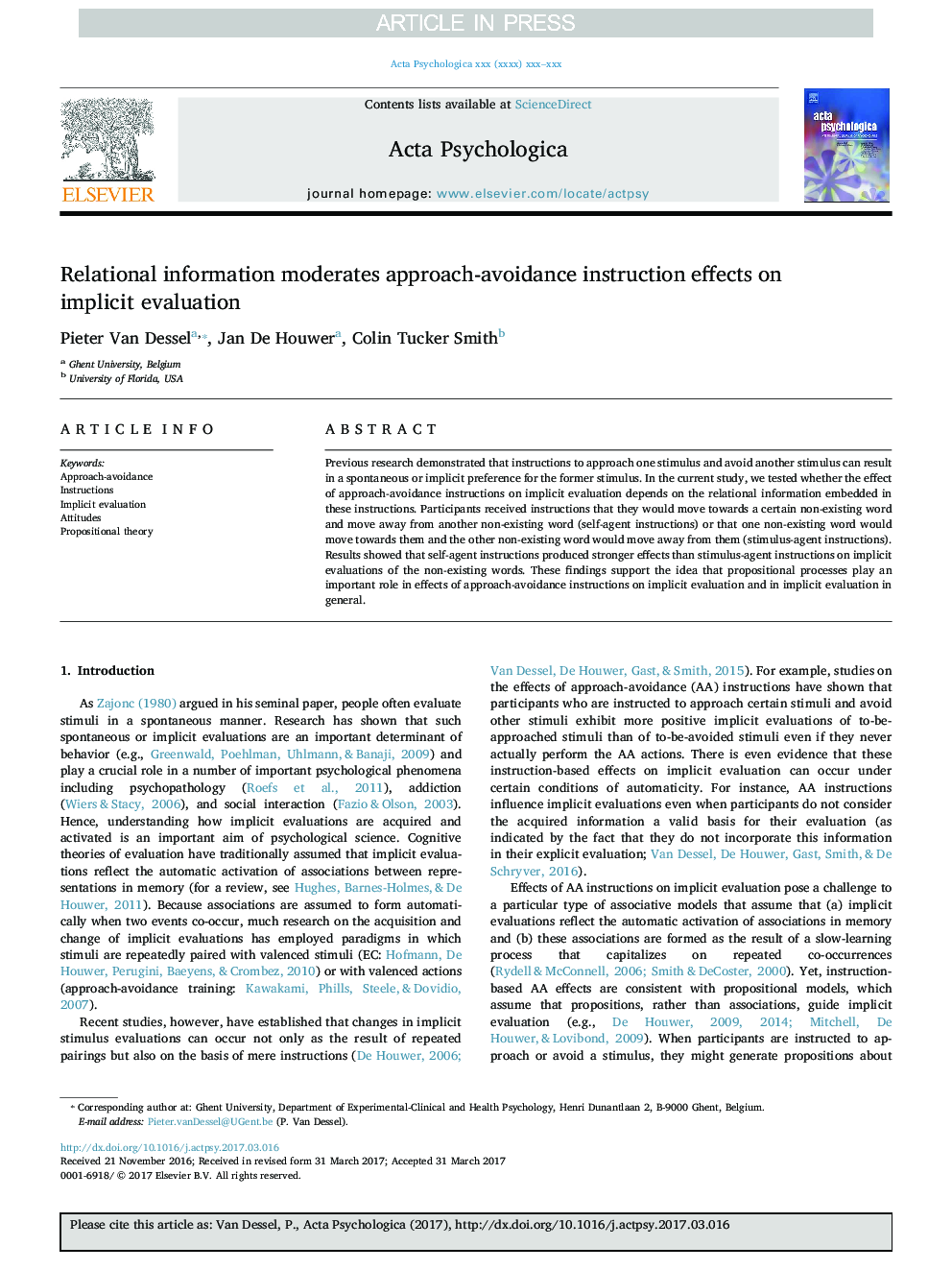| Article ID | Journal | Published Year | Pages | File Type |
|---|---|---|---|---|
| 7276818 | Acta Psychologica | 2018 | 7 Pages |
Abstract
Previous research demonstrated that instructions to approach one stimulus and avoid another stimulus can result in a spontaneous or implicit preference for the former stimulus. In the current study, we tested whether the effect of approach-avoidance instructions on implicit evaluation depends on the relational information embedded in these instructions. Participants received instructions that they would move towards a certain non-existing word and move away from another non-existing word (self-agent instructions) or that one non-existing word would move towards them and the other non-existing word would move away from them (stimulus-agent instructions). Results showed that self-agent instructions produced stronger effects than stimulus-agent instructions on implicit evaluations of the non-existing words. These findings support the idea that propositional processes play an important role in effects of approach-avoidance instructions on implicit evaluation and in implicit evaluation in general.
Related Topics
Life Sciences
Neuroscience
Cognitive Neuroscience
Authors
Pieter Van Dessel, Jan De Houwer, Colin Tucker Smith,
